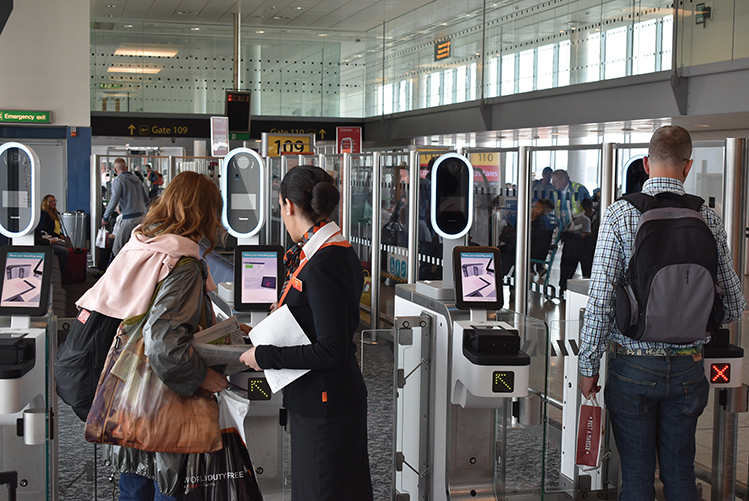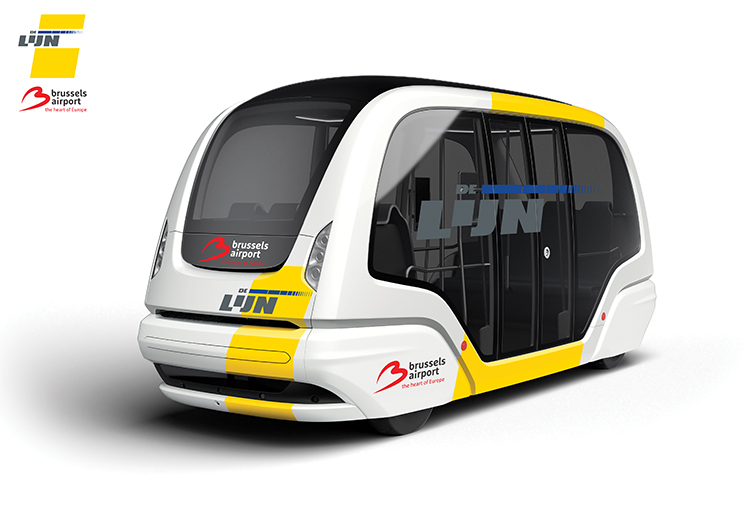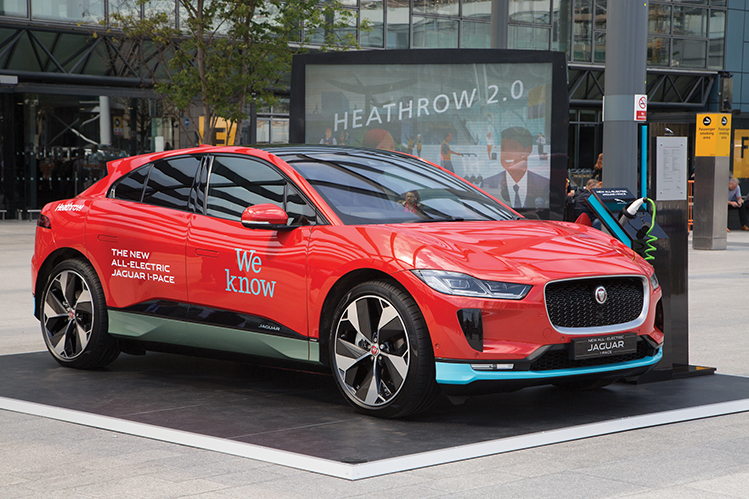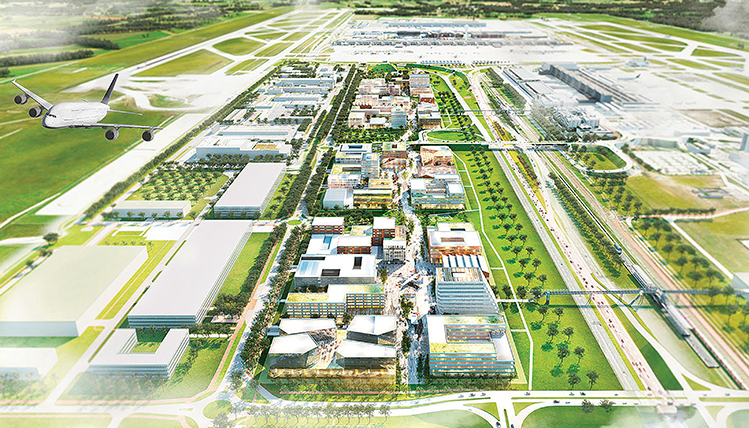Gatwick, Brussels, Heathrow and Munich airports are among those currently at the forefront of innovation across Europe, as Ryan Ghee reports.
Gatwick Airport launches biometric technology trial for easyJet passengers

The self-boarding technology can identify each passenger and verify that their passport, face and boarding pass all match within 20 seconds.
Gatwick Airport has launched an end-to-end biometrics trial, where personal data collected at the airport’s self-service bag drops will be recognised by new automated self-boarding gates. The technology is designed to simplify and speed up the process for passengers and reduce the risk of human error.
The trial is being run in partnership with easyJet and the new self-boarding technology will identify each passenger and verify that their passport, face and boarding pass all match, which will take less than 20 seconds. Passengers who wish to take part in the trial, but who are travelling without luggage and do not need to use a self-service bag drop unit, will be able to have their data collected at the entrance to the boarding gate room. The trial will run for at least three months so that around 10,000 passengers take part on 43 Gatwick routes.
Gatwick will be looking at how long each interaction takes, what this means for queue times, how it simplifies the passenger journey, how passengers interact with the technology, and how intuitive the process is. The faster, more efficient process also has the potential to improve aircraft departure times. Once all the data is gathered, the technology will be adapted and adjusted before taking the idea forward for airport-wide implementation.
The boarding process has traditionally been handled by airline staff, but can now be automated with this technology, reducing queue times and freeing up airline staff to assist travellers.
“Gatwick prides itself on providing innovative solutions to enhance the passenger experience at every touch point,” says Chris Woodroofe, Chief Operating Officer, Gatwick Airport. “With the rate of growth we have experienced, it is essential we are able to find more efficient ways of processing passengers through the airport safely and securely. Self-boarding technology is the obvious next piece in the jigsaw following extensive investment in our automated check-in and security processing areas.”
Brussels Airport agrees introduction of self-driving electric bus

Brussels Airport Company and De Lijn have partnered to introduce a self-driving electric bus on the airport campus.
Brussels Airport Company and De Lijn have given the go-ahead for the introduction of a self-driving electric bus on the airport campus. After the summer of 2019, tests without passengers will begin at 2getthere’s test site in Utrecht. The shuttle bus will then arrive at Brussels Airport at the beginning of 2020 for further tests.
In 2015, Brussels Airport Company and bus operator De Lijn entered into a partnership with the intent to deploy self-driving shuttles at the airport. After further study and the choice of the manufacturer, both companies have given their full support to the pilot project for testing an autonomous shuttle on the airport grounds.
“As an intermodal hub where various means of transport connect seamlessly with each other, Brussels Airport is constantly studying new possibilities for expanding this hub in a sustainable way,” says Arnaud Feist, CEO Brussels Airport Company. “This technologically innovative project, deploying a self-driving electric bus operating a fixed route, also fits in with our environmental commitment to keep the impact on our surroundings as low as possible.”
Minister for Mobility Ben Weyts adds: “In other countries driverless vehicles are already operational, but that is often in a separate lane with a steward on board. Here, the aim is to have the self-driving shuttle drive autonomously on the public roads. This is cutting-edge technology that really appeals to the imagination. We are making an investment in the future, in greater efficiency and in a more attractive range of public transport.”
Heathrow partners with Jaguar to introduce I-PACE electric vehicle fleet

Heathrow Airport’s I-PACE fleet will initially include 50 vehicles, with the option to add a further 150 cars in the next 12 months.
Heathrow Airport, Jaguar and travel services company WeKnowGroup have signed a deal that will see a fleet of up to 200 fully-electric Jaguar I-PACE vehicles made available to passengers for travel to and from Heathrow.
The service, which will go live in summer 2018, will create the largest chauffeur-driven fleet of electric vehicles in the UK and support Heathrow’s commitment to improving air quality around the airport.
Initially the fleet will be made up of 50 I-PACEs, with the option to add a further 150 cars in the next 12 months. This fleet will support up to 1,000 electric vehicle journeys to and from Heathrow each day – saving over eight tonnes of nitrogen oxides (NOx) emissions each year. To support the service, WeKnowGroup will be installing a dedicated charging hub at Heathrow, which will be the largest in the UK.
Designed and engineered by Jaguar Land Rover in the UK, the all-electric I-PACE carries a state-of-the-art 90kWh Lithium-ion battery and is capable of a range of 298 miles.
Emma Gilthorpe, Executive Director at Heathrow, says: “We will not compromise on our commitments to the environment and our local community and we remain focused on addressing the impact road vehicles have on air quality on the roads around the airport. These I-PACEs are the latest in a long line of initiatives we are taking to ensure that we do not force a choice between the economy and the environment – and that we can deliver benefits for both.”
Munich Airport reveals plans for LabCampus innovation centre

The LabCampus project will foster cooperation by bringing together a variety of companies and industries.
Munich Airport has embarked on a new future-focused project, LabCampus, which will serve as an innovation centre at the airport campus.
The visionary project will foster cooperation between companies and industries by bringing together leading experts, global companies and startups at the heart of the airport.
“There are 150,000 people at Munich Airport every day: passengers, employees and visitors who are potential customers, business partners and visitors for LabCampus,” says Thomas Weyer, CFO and Director of Infrastructure at Munich Airport. “Nowhere else will you find better connectivity to customers and partners.”
The new campus will offer a unique meeting point for high-tech industries and key sectors working in such areas as aerospace, digitalisation, energy and mobility. Potential key partners include companies such as Siemens and Design Offices and research organisations including Fraunhofer Institute, Friedrich Alexander Universität Erlangen-Nürnberg and UnternehmerTUM, the startup incubator of the Technical University of Munich.
Munich Airport will serve as the curator, as FMG, the airport operating company, will ensure the appropriate mix of industries and companies bring the right partners together and develop the campus infrastructure and utilities. FMG will establish a separate subsidiary to manage the project.
Dr. Michael Kerkloh, CEO and President of Munich Airport, comments: “In the age of globalisation and digitalisation, airports have to blaze new trails to find and retain competitive advantages. In that regard, LabCampus is a step that anticipates the future.”







